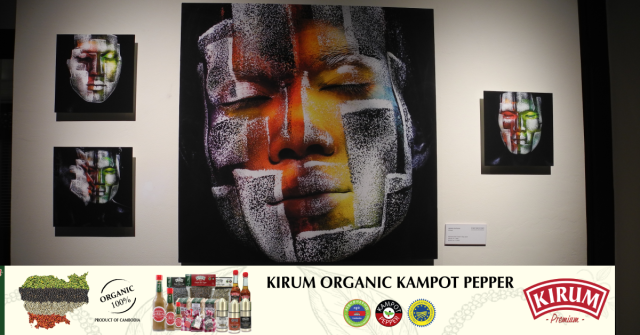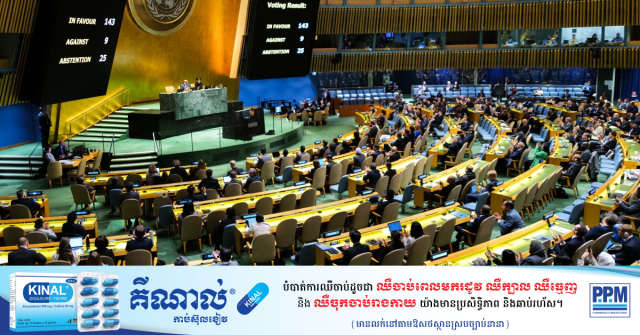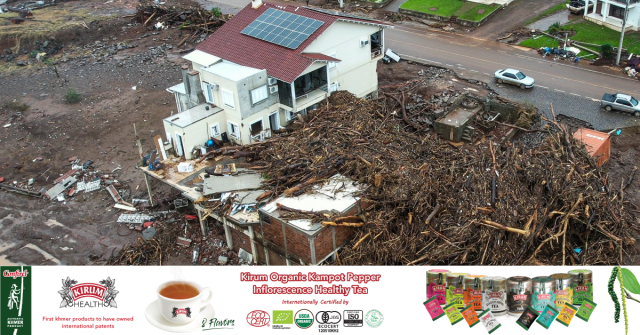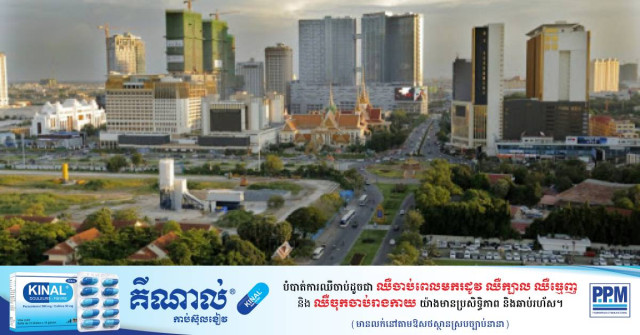The Hospitality Kampuchea (HoKa) Training Program Can Lead to a Decent Future for Young People, Trainers Say
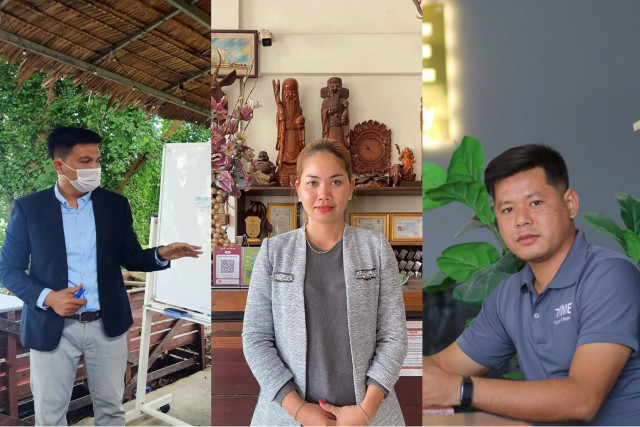
- By Nhek Sreyleak
- May 29, 2022 3:28 PM
This also will improve service and quality in the industry, benefitting all, they add
PHNOM PENH–Combining will and perseverance, three young Cambodians have turned themselves into successful business owners or managers after taking part in the training program of Hospitality Kampuchea (HoKa).
Moreover, they have become HoKa trainers.
“The reason why I wanted to be a front-line office trainer was because I want to share knowledge and experience with others so they will have the courage to learn, work and have the opportunity to show their abilities to improve tourism services,” said Meas Ratha. Currently manager of the White House Guesthouse in Preah Vihear Province, Ratha is also a trainer for the Preah Vihear Provincial Department of Tourism.
The HoKa training program is being conducted by the Skills Development Program—a project of the Swiss Agency for Development and Cooperation done in cooperation with the Ministry of Tourism. Focusing on five provinces—Kratie, Mondulkiri, Preah Vihear, Ratanakkiri and Stung Treng provinces—HoKa has so far taught more than 1,000 trainers and trainees to strengthen professionalism in tourism.
Now in its second phase 2020-2024, the program is being implemented by Swisscontact Cambodia and the Institute for Vocational Training, Labour Market and Social Policy in cooperation with the Ministry of Labor and Vocational Training, and the Ministry of Tourism.
The program carries out various activities in close collaboration with national and sub-national administrations, the National Employment Agency, public and private training providers, as well as companies and small enterprises in the hospitality and other sectors.
Ul Vitou is the owner of The Coffee Time in Kratie City in Kratie Province. Having taken part in the HoKa training program in 2018, he now is a HoKa trainer in his province.
This training has also helped Vitou be more successful with his own café. “After completing this training, I could use the knowledge and skills gained to train my staff,” he said. “HoKa has provided us with many skills such as technical skills, soft skills and entrepreneurship, as well as knowledge on environmental protection and climate change mitigation.”
Attending the training took hard work and dedication, Vitou said. And then, studying to become a trainer was no easy task either. “To become a trainer, we need to understand the teaching methods and technical skills that need to be taught first,” he said.

The pandemic did not make matters easier, Vitou said. “In the context of COVID-19, [it] required some online learning, some face-to-face learning, which required a lot of flexibility.” During the training, the HoKa Committee of the Ministry of Tourism, the Kratie Provincial Department of Tourism, as well as the Skills Development Program team never stopped encouraging him to keep on studying, he said. “In the end, I was able to become a trainer recognized by the Ministry of Tourism.”
Eager to show his appreciation for the HoKa program, Vitou said, “I am committed to helping the community by sharing the knowledge and skills I gained from the training with the community.” Moreover, he said, without the HoKa training, business at his own café would not be what it is today.
Thang Vatey also became a trainer specializing in food and beverage service after taking part in the Hoka Training Program.
Currently the owner of Domino Restaurant in Stung Treng Province, he said that, in addition to technical skills, he acquired soft skills such as communication, problem solving, behavior, makeup, safety and food hygiene through this training program.
“After [completing] the training, I was very happy because I had gained good skills and many benefits for the food and beverage service,” Vatey said. “I am really excited and proud to be a person with specific skills. No matter where we go, there is no shortage of decent work to do.”
Vatey is very confident in the HoKa training, which can provide a waiter or business owner real, practical skills to serve customers better, he said. Moreover, this training can also create jobs for young people who are poor and lack the ability to continue their education to get decent jobs.
Continuing to teach and sharing his knowledge with young people in addition to running his restaurant is not a problem for Vatey, he said, as he truly enjoys his role as trainer that enables him to educate vulnerable people or youths needing skills to get good jobs in his area.
Meas Ratha in Preah Vihear Province has a similar goal. “I was excited to be selected as a HoKa trainer because it was in line with my wishes,” she said. “Being a trainer…I will try to teach and share all this knowledge, skills and experiences with vulnerable young people and school dropouts so that they have a chance to get decent jobs.”
The training Ratha received when she first attended the HoKa training, made her change a great deal at work, she said. “The HoKa program has made me more attentive and understanding,” she said. “In the past, we were less patient [at the guesthouse]…when guests complained, we sometimes complained back. But now I can handle it better. All these are soft skills that I gained from [the] hospitality training.”
Ratha is convinced that the HoKa training is really valuable and can truly help improve service in the hospitality industry in addition to creating opportunities for people to get training that will help them earn a good living.
Meas Ratha, Thang Vatey and Ul Vitou are truly convinced that the HoKa training can help change the lives of vulnerable young people by providing them with the skills to get decent jobs and incomes. As business owners, they also see the training as enabling them to get the knowledge and find the staff that will help businesses run better, offer quality service to customers, and prosper.












